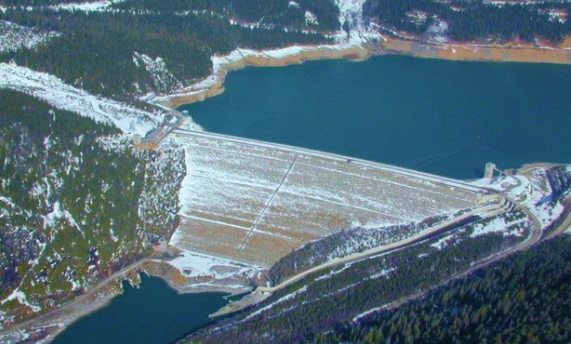Modernized Treaty would go beyond flood control: Canadian negotiation team
The Columbia River Treaty won’t get ‘modernized’ unless it reduces impacts on Columbia Basin communities and ecosystems, says the team representing Canada at the negotiation table.
The Canadian negotiation delegation — which includes Canada, B.C. and the Ktunaxa, Secwepemc and Syilx Okanagan Nations — maintains that a modernized Treaty will have to meet B.C. Indigenous and Columbia Basin community objectives (as well as U.S. needs) in a fair and balanced way, a press release on April 29 noted.
“The team will not agree to a modernized Treaty unless it leads to improvements in the B.C. Basin and reduces impacts that Basin communities and ecosystems have been experiencing since the Treaty came into force,” the release stated.
While there has been movement made on the negotiations — and the countries are aligned on many issues — a few key pieces remain outstanding, the Canadian team avers.
With two additional rounds of proposals in 2023 — bringing the total to four — outlining the position from each side of the border on what a modernized Treaty could include, the proposals include not only flood risk management and hydropower co-ordination, but also “ecosystem health, salmon restoration, adaptive management, increased flexibility for Canadian operations, and enhanced bilateral engagement on Libby Dam operations.
“With the heightened awareness of climate change, ongoing drought across the province, and the increased societal demand for hydroelectricity, there is intense interest from citizens, communities, Indigenous Nations, Tribes and governments on both sides of the border in the potential benefits of a modernized Treaty.”
With no deadline set on the negotiations, if the two countries do not reach an agreement on a modernized Treaty, it will continue in its current form. However, the original flood control provisions will expire in September and shift to a “called-upon” regime, requiring the U.S. to utilize its reservoirs to manage flood risk before “calling on” B.C. for additional water storage.
Although the next round of negotiations has not been scheduled, the two delegations will conduct virtual intersessional meetings to work through unresolved issues. It is expected that before a renewed Treaty is finalized, the Province will engage with Basin communities to explain what is being proposed and seek feedback.
Year to remember
This is also the first year Canada or the U.S. can unilaterally terminate the Treaty, provided at least 10 years notice is given.
“It is also worth acknowledging that both the U.S. and B.C. are holding elections this fall,” the release revealed. “The Treaty has historically been a non-partisan issue, and negotiations have continued through multiple administrations and governments on both sides of the border.”
Changing of the guard
The role of Canada’s lead negotiator for the Treaty changed last August.
Sylvain Fabi, who had been leading the Canadian delegation for Global Affairs Canada since 2017, elected to focus on his Consul General of Canada role for the U.S. Mountain West Region in Denver.
That opened the door for Stephen Gluck, Global Affairs Canada deputy director, to assume the lead negotiator role. He has been on the Treaty modernization team at Global Affairs Canada since 2011.


























Comments